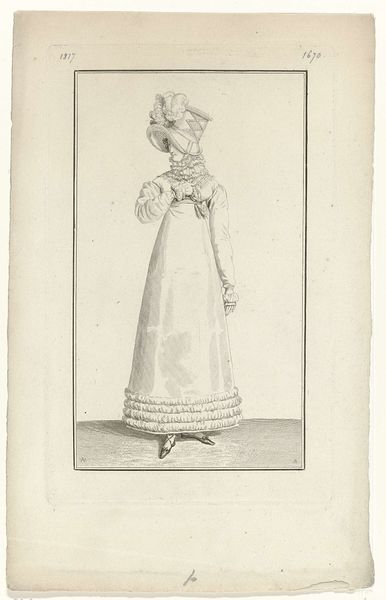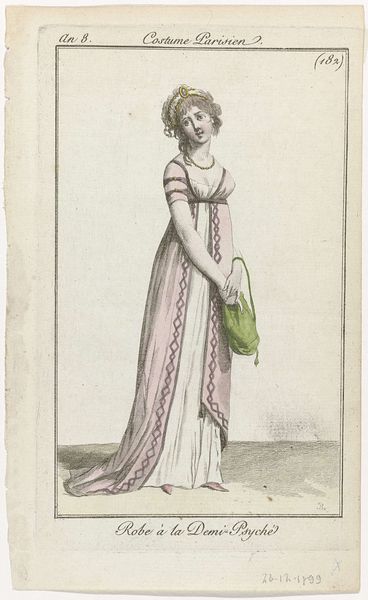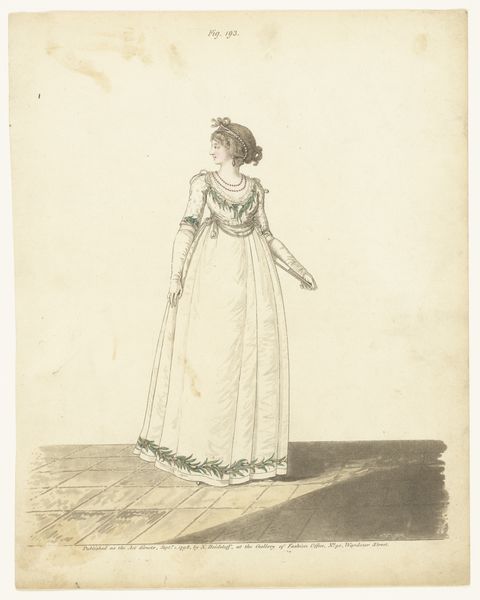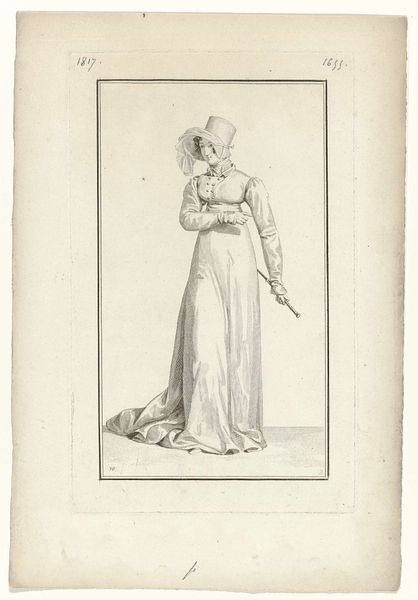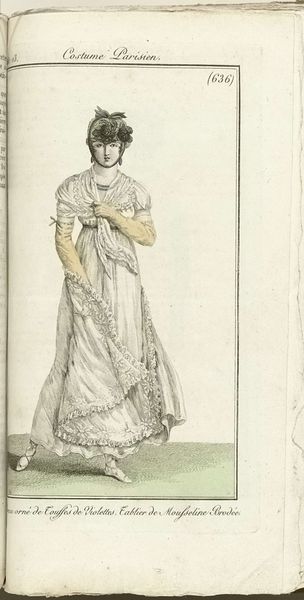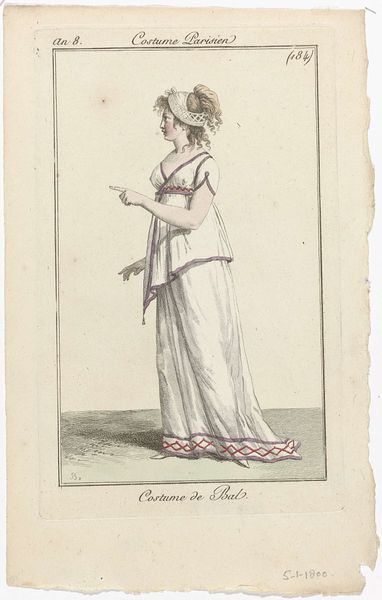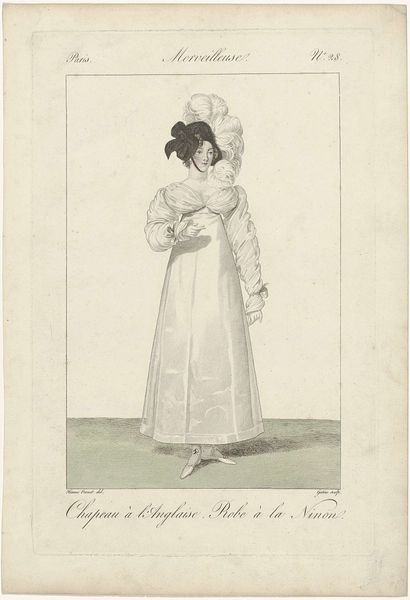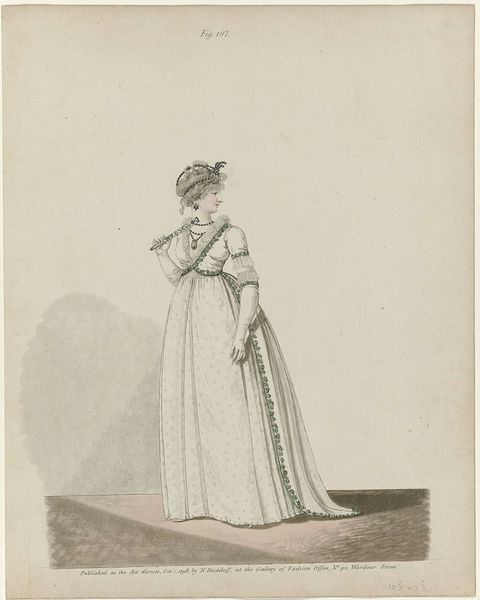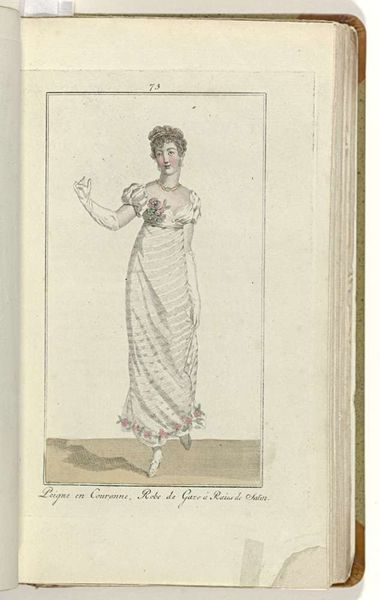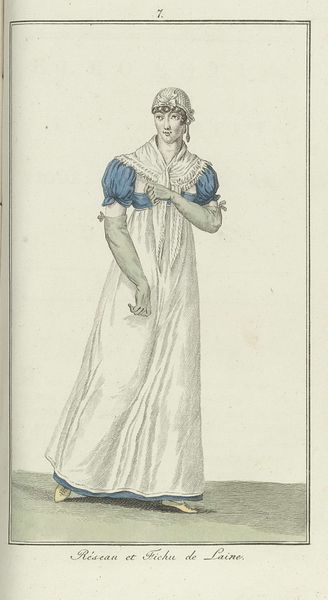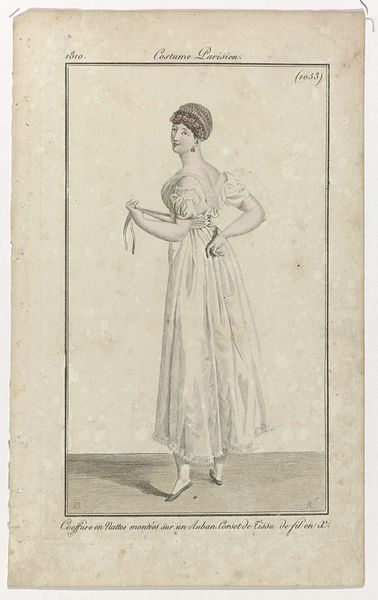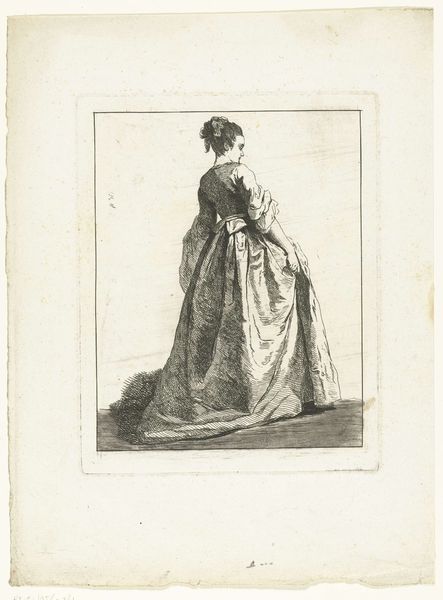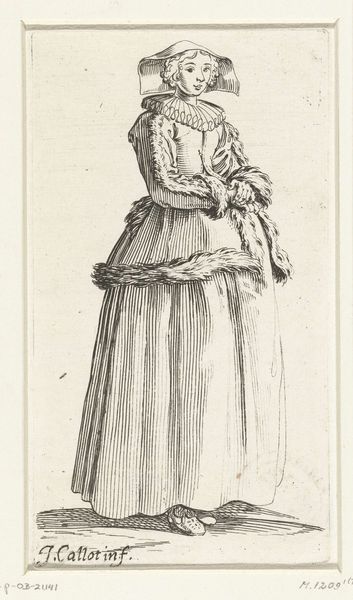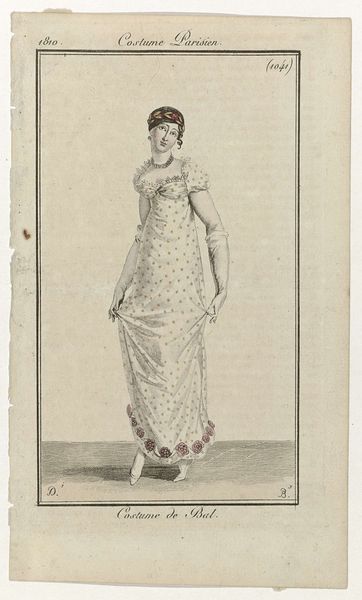
Journal des Dames et des Modes, Costume Parisien, 15 mars 1817 (1634) 1817
0:00
0:00
pierrecharlesbaquoy
Rijksmuseum
drawing, print, paper, pen
#
portrait
#
drawing
#
neoclacissism
# print
#
figuration
#
paper
#
pen
Dimensions: height 176 mm, width 111 mm
Copyright: Rijks Museum: Open Domain
Curator: Here we have "Journal des Dames et des Modes, Costume Parisien, 15 mars 1817" by Pierre Charles Baquoy. This particular impression, dating from 1817, comes to us from the Rijksmuseum collection. Editor: It feels almost ghostly. She's rendered so delicately, like a faded memory in the palest of greys, and her hands seem weightless, barely touching the rose. Curator: Exactly. These prints were designed to circulate fashion trends. The labour involved—etching, engraving, printing—was crucial for the rapidly changing world of Parisian style. It speaks volumes about early consumer culture. Editor: It’s amazing to think about all that meticulous handcraft devoted to, essentially, ephemera. Today’s fast fashion has nothing on this; the speed of trend-setting has increased dramatically but then relied so completely on artisans, on the physical process. I love the juxtaposition. Curator: And consider the target audience. These weren't accessible to all women. It illuminates class dynamics—who could afford to partake in these styles, and who was employed in their production and distribution. Editor: Right, so there's the dreamy image of the lady, contrasted against the work necessary to bring that image, and her dress, into being. Does that ornate ruffled trim on the dress signify something about her wealth? The volume seems impossible! Curator: The detailing certainly signifies expense and taste. The print serves as both inspiration and advertisement, fueling desire while also showcasing available materials and skilled labor. Editor: Thinking of it as an artifact of material culture really brings it alive. Curator: Indeed. By acknowledging the processes of creation and consumption surrounding this image, we understand its function far beyond mere decoration. It mirrors society, economy, and the shifting sands of taste. Editor: Makes you want to reach out and touch history. Though I suspect the Rijksmuseum might frown on that. Thank you, the dress looks divine in my minds eye now.
Comments
No comments
Be the first to comment and join the conversation on the ultimate creative platform.
